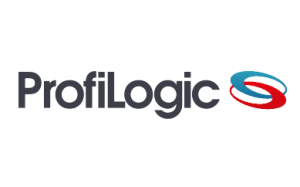The Hospenthal Group at the Institute of Molecular Biology & Biophysics (IMBB) at ETH Zurich, Switzerland, investigates the molecular mechanisms that govern natural transformation in bacteria - an important mode of horizontal gene transfer. We use complementary approaches including cryo-EM, biophysical methods and in vivo functional assays to study the protein machineries involved in this process.
Join our young, ambitious, and international research team. The Hospenthal group has access to state-of-the-art light and electron microscopy instrumentation, including FEI Vitrobots and related grid preparation facilities and three Titan Krios microscopes, all hosted and maintained at ETH Zurich's imaging facility, ScopeM. Appropriate computational resources are also readily available. In addition, we have access to the biophysical instruments needed to analyse protein-protein and protein-DNA interactions.
Job descriptionWe are looking for an enthusiastic and highly motivated PhD candidate to investigate how DNA is translocated from the extracellular environment into the bacterial cytoplasm, where it is incorporated into the genome. To do this you will:
- Express and purify proteins
- Conduct quantitative binding experiments (protein-protein and protein-DNA interactions)
- Produce stable complexes between proteins and/or DNA
- Determine structures of proteins/complexes
- Design mutants and perturbations for in vivo experiments
- Perform in vivo functional assays (e.g. microbiological approaches, fluorescence microscopy)
Start date as soon as possible, but no later than January 2026. Further project details will be discussed during the interview.
Profile - MSc Degree in biochemistry, molecular biology, structural biology or related curriculum.
- Motivation to tackle complex and interesting mechanistic questions.
- Research interest in horizontal gene transfer, natural transformation, membrane proteins, DNA transporters.
- Experience with protein expression and purification.
- It will be of benefit to have experience with:
- quantitative biophysical methods (e.g. fluorescence anisotropy, ITC, SPR).
- cryo-EM (sample/grid preparation, data acquisition, data processing, model building and interpretation).
- The writing of scientific papers and active participation in internal meetings and in international conferences will require a good knowledge of English.
- Ability to work independently, as well as to contribute to a collaborative lab culture.
We offerWe offer a stimulating role in a vibrant group exploring the molecular mechanisms underpinning bacterial evolution and resistance. This fully-funded, full-time position combined with ETH's excellent working conditions, makes the role especially appealing. Your workplace will be on the ETH Campus at Hönggerberg in Zurich.
- Your job with impact: Become part of ETH Zurich, which not only supports your professional development, but also actively contributes to positive change in society
- You can expect numerous benefits , such as public transport season tickets and car sharing, a wide range of sports offered by the ASVZ , childcare and attractive pension benefits
> Working, teaching and research at ETH Zurich
We value diversity and sustainability In line with our values , ETH Zurich encourages an inclusive culture. We promote equality of opportunity, value diversity and nurture a working and learning environment in which the rights and dignity of all our staff and students are respected. Visit our Equal Opportunities and Diversity website to find out how we ensure a fair and open environment that allows everyone to grow and flourish. Sustainability is a core value for us - we are consistently working towards a climate-neutral future .






